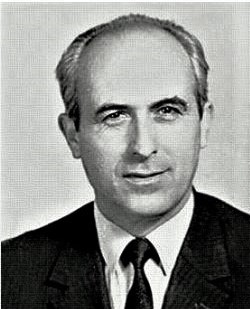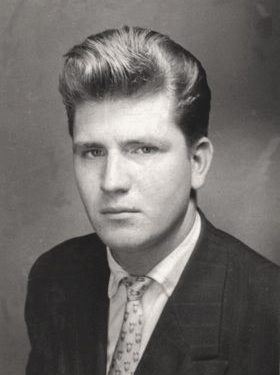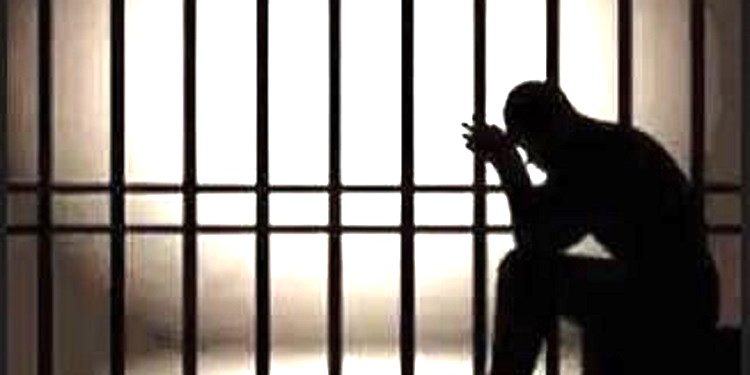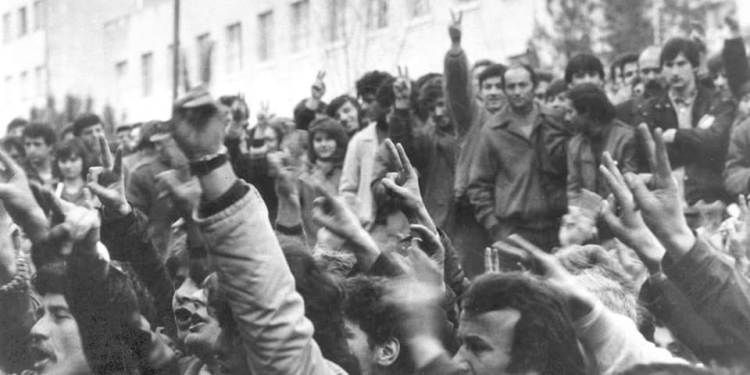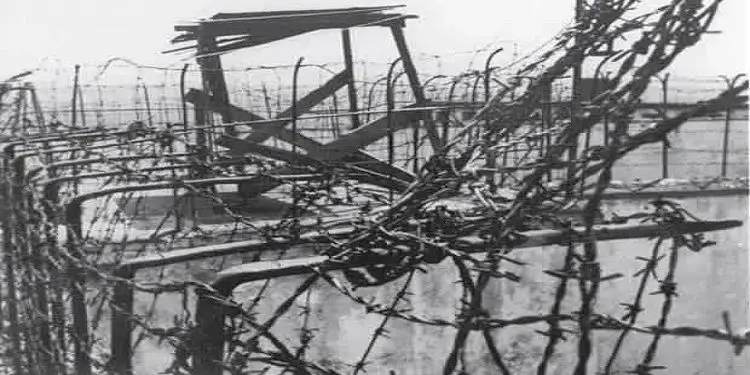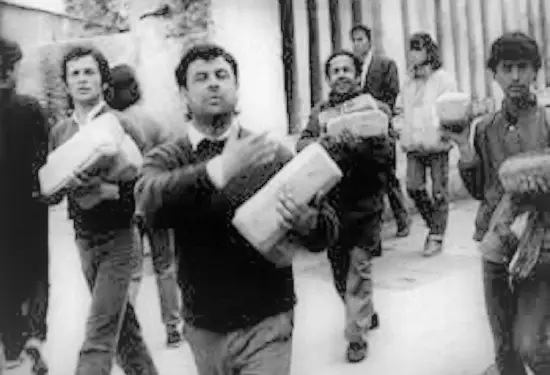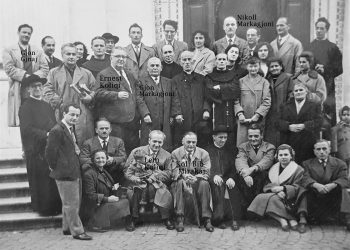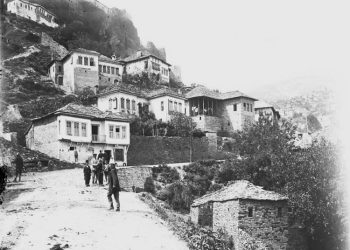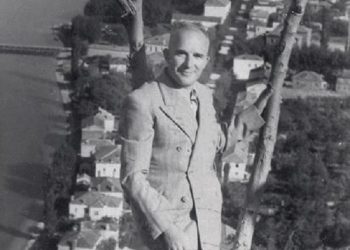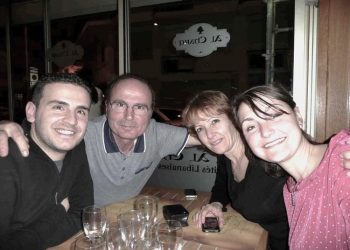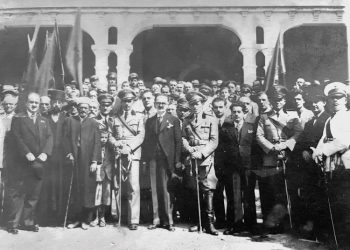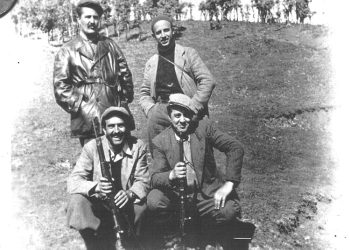By Petraq Xhaçka
Part thirty-five
Memorie.al/ The purpose of this book is to join the efforts made to present the truths and horrors of the communist dictatorship in Albania. The main purpose of the book is not to show our people or anyone else, that we oilmen have been innocent, because this has become known from publications in our press, from foreign televisions, as well as from direct meetings with the International Forum and the Albanian Human Rights. The author’s desire, is that through this story, together with other stories, fight any manifestation in any form, even moderate, that he may have to create a communist society. I think that even through this bitter personal history, the cruel, treacherous and overbearing face of Enverism will appear, that for half a century, held the knife with the tip in the chest of the Albanian people, with a pine eye, intercepting the movements for salvation from the outside, or rebellion of the people themselves, ready to push the knife to the heart, at the first movement. The events are set in the economic fields where it has appeared most strongly, such as the oil and gas industry, where I was fortunate to pour my energies, for a lifetime, and become a participant and witness in those events. All the events that are written in this memoir are true, not only without any exaggeration or embellishment, but perhaps, I don’t know how much I was able to present the terrifying force of the events that took place in that decadent system of socialism, where no there was no human feeling.
Continues from last issue
One night there was a knock on the door and freedom came
From the window of our bedroom, and especially from the window of the other room, a more complete view of the courtyard of ward 326 of the Special Forces, which was located next to the southern part of Tirana Prison, was given. On a hot day in July 1990, we noticed that in the courtyard of the ward, with constant alarm signals, soldiers dressed in special self-defense uniforms, with plastic shields, with helmets on their heads, with batons, were rapidly gathering and with all their weapons. This was a rare event; both Enrico and I were seeing it for the first time in these dimensions.
We stayed for a long time at the window and were watching carefully, whether the soldiers were going to some operation or it was just training. After some hours, we noticed that they hurriedly got into the car and left in an unknown direction. Without understanding what had happened concretely, we were very happy, because we thought that somewhere some special event would have happened, which showed that the people had really started to rise up against the dictatorship.
In the evening, we learned from the television that hundreds of young men and women, old people and even children, had entered the German embassy and several other embassies. This event showed that the communist system in Albania was being seriously shaken. He no longer had his former strength. The strong shock wave of events and changes started in the East, finally arrived in Albania, and these had put the Albanian leadership in deep thoughts, to find ways of solution. First, it began to change tactics, presenting itself as if it were committed to increasing the democratic spirit.
At the beginning, a meeting was organized with intellectuals, where some of them spoke about democratic norms, freedom of the press and many other needs. Some individuals were encouraged to write about this delicate topic in the press as well. But it didn’t take long and the signs of stagnation appeared again, some went back to the untrodden path and the dictatorship started to show its teeth again.
Despite the limitations of real news on television, we once again realized that the chain of events leading to historical change was unbroken. The incidents were small in the beginning, but they kept increasing, in terms of the shocks they caused and the very content of the political demands that pushed them. By the end of 1990, these popular outbursts were taking on huge proportions. Enrico and I, now we kept our eyes on the courtyard of the Rapid Intervention Forces department, to understand where the thermometer of political unrest had risen. The more the leaders of this department and the leaders of the state worried, the more our hearts rejoiced, which had previously fallen into a pronounced pessimism.
The events of a few months ago in Romania, against the Ceausescu dictatorship, had been extremely powerful and had led to his execution. This was a powerful earthquake, which was collapsing a decadent system tried by some countries of the East, but which was not even compared to the severity and backwardness of our country. When these manifestations became more widespread, such as student movements, the release of pluralism, or the general strike, it became clear that the communist dictatorship that drowned Albania in blood and tears was coming to an end. Its foundations were severely shaken. Her portrait made of cowhide was transformed into an image of a lamb. The end of Ceausescu, the Albanian leadership was horrified. She began to act in other forms, to escape from this powerful cyclone. It was understood that power could no longer be maintained by force, but it had to be done differently.
She ran to bring her people into this movement, in order to direct it in the direction that was easiest and most convenient for them. The people thirsty for democracy, tired of terror, of the dire economic situation, of the unprecedented closure of the country, of the absence of any minimal human rights, of the imperceptible persecutions of innocent people and their families, rose to feet, with an unprecedented hatred. The soldiers and police that the regime sent to contain the shock wave joined the crowds of demonstrators and refused to shoot at them. Headquarters were being set up everywhere, which took over the direction of the revolts.
The events took place very quickly and unfortunately the real persecuted forces were tired, exhausted and could not play the important leading role that was due to them. While the State Security greatly popularized its figures, which it had introduced into the movement, as a fifth column, in the clothes of democrats. Former members of the Central Committee of the Party, former ministers of the dictatorship, former sons of senior officers of the State Security, came out and were theorizing about the economic paths that Albania had to take, where the democrats had to destroy everything, and start from scratch. .
This put the democracy in dire straits, leaving the country immediately without factories, without jobs, which increased discontent among the people. This was a ruse, a well-thought-out plan, because the leadership of the Communist Party had experience behind the scenes, for traps, and unfortunately it achieved its goal. I think that here it is not a matter of evaluating people, whether they were in the party or not, as is the practice in Albanian politics, because it is well known that there were many honest communists who had joined the party for some pure ideals and they were much more honest and more suitable than many others who had not been in the party at all. The basic criterion should have been the attitude of these people, in the period before the democratic explosions, their role in the life of the country, their honesty, separating them from people who had committed crimes, who were active and protective elements of that regime.
In the course of these events, the crowds demolished the monument of the dictator Enver Hoxha, in the middle of “Skënderbej” square, in the center of Tirana. This was the bell of victory over communism, over the lack of freedom and democracy. The strike of the students, of these young shoots, increased the weight of the popular revolt. The people began to control the situation everywhere. In Kavaja, the freedom-loving people became the master of the city Kavajas controlled the national road that passed through the city, stopped every car and asked the passengers in it: “Who are you with”?! Everyone, both those who were, and those who not only weren’t, but were terrified of democracy, answered the same: “We are with the democratic”. It was the first time that both the fanatical communists and the criminal insurance companies were afraid of being held accountable for the crimes they had committed and denied what they had in their hearts.
This situation, with the continuous and numerous demands of the people to release the political prisoners, forced President Alia to be “moderate” and announce a large pardon. In these days, the director of the prison, as rarely, came to our office and sat on the chair. After opening several different conversations, he came up with the topic: – “The president made a big amnesty, from which many prisoners have benefited. The other friends of your group have also benefited for many years and now they have only a little prison left to do, one or two years, and then they will go to their families. For both of you, there was no sentence reduction and I don’t know the reason.”
He expected us to jump up, but we didn’t speak at all, we didn’t ask for any explanation and we didn’t even express any regret, although for us, it was incomprehensible why this separation was made in our group, when against us, there had been the same accusations! Faced with such a stance, from our side, he was forced to break the silence himself: “I have an order to tell you, to make a prayer, to ask the Presidium of the People’s Assembly to pardon your sentence and release you from prison. You understand that this is a very good thing that you will immediately go to the families”.
I answered him on the spot that we had not committed any crime, we had not committed any sin and we had no need to pray for forgiveness! Apology means indirectly, that we accept the fault, what is done, now please forgive us! No way! We want our justice. In conclusion, I will not say any prayers. At this moment, the close friend of the most difficult years of my life, the late Enriko, intervened:
– “Petraq, you are right about what you say, but I think we should make the request and get out of prison once. Then we have greater opportunities to claim our rights. By going close to the families, we have the opportunity to follow the case better. I turned to my roommate: – Dear Enrico, if you want to, say the prayer and I have no regrets about it. I will not offer any prayers to the criminals who unjustly took our lives, who tortured us and treated us like animals. I never make that prayer. I demand my right! You act how to judge for yourself! In response to my firm attitude, Enrikoja replied: “Petraq, if you didn’t pray, I don’t either”!
Then I got up from the table and in the eyes of the director of the prison, I hugged Enrico with great emotion, for this solidarity, because he, perhaps more than me, did not find it easy to say that he would continue to stay in prison for many more years. The director of the prison was forced to leave without fulfilling the task given to him, the one that we, under the threat of the continuation of the prison, managed to bring us to our knees, before the leadership of the dictatorship, which was slipping the ground under its feet.
Even though the amnesty was announced, the people continued to demand the release of all political prisoners, this political request, with a very big meaning. So before long, the President of the Republic was forced to announce the “forgiveness” of the crimes of all political prisoners and their immediate release. This was broadcast in newspapers and on television. We were waiting for our release, our families were waiting for the appointed day to come and hold us in their arms. But in vain. We asked the director of the prison why they were not releasing us. The appointed date has not passed. He replied that our names were not in the lists that had come to him.
Liars used to deceive all their lives, and this time they deceived the people. Under these circumstances, my wife went and complained to the authorities, but they not only did not respond, but most of them did not even wait. Then Zhani decided to go to the Human Rights Forum, which was formed quickly, in these turbulent times for state leaders.
Zhaneta met with the chairman of this forum, Professor Arben Puton. You had received him very well, with respect and politeness, and you were surprised, how you still had political prisoners, not released. – “From the President’s statement on television, we know that all political prisoners have been released”, – Professor Putoja told him. – “And even more so for Mr. Xhaçka, a well-known name in scientific circles”! In the end, he promised the woman, the help of his forum. In those days, we were cut off from meeting with our families and we didn’t know what was happening.
When, unexpectedly, on a day in February 1991, if I’m not mistaken, it was a day and a Sunday, the director of the prison came to our office and asked us to follow him, because he was going to meet some people. After we followed him through the corridors of the prison, the director ushered us into an office. We saw some visitors sitting there, from whom I recognized Professor Arben Puton. I had never had a conversation with him, because we worked in different scientific fields, but we had seen each other at the meetings held near the Academy of Sciences.
The visitors introduced us and there we learned that they were a group of the Human Rights Forum. Putoja, as chairman, was accompanied by two members of the forum, professor doctor Ylli Popa and director Kujtim Çashku. We were very happy with this unexpected meeting, not only because we were meeting members of a forum, which was of great importance in our eyes, but also because of the fact that well-known and respected people of science and art had come. At that moment, I did not know that my wife had gone and complained on the forum.
It had been over five years since we had felt such human behavior towards us. No one before, you had asked us about our health, about our families. Then, they asked to hear our complaint. Of course, they only knew what they had read from the press, from the speeches of the party and state leaders at the P.P.Sh Congress in 1986, so that; “we were a dangerous hostile group, oil saboteurs, who wanted to overthrow the people’s power”.
We let them know with strong convincing arguments, the whole truth of our investigative process, the misery of the judicial farce and we proved our innocence completely. We told them all the tortures used on us by the interrogators, with their specific names. We described how they were asking us at all costs to accept treason and economic sabotage, things we had never committed.
We were told about the alternatives that were presented to us in the interrogator, to either accept the charge, or they would kill us and deport and imprison our families. We made it clear to them how rules and laws were violated in the investigative process, without the presence of the prosecution, and how our depositions were combined. We asked them to redo our trial in the presence of them, journalists, and our families, and there we would argue the entire fabrication of our investigative and judicial processes. We directly accused the state leadership as organizers of this diabolical communist process.
They listened to us for over three hours, their faces painted with deep pain. I will never forget the moment when I saw the tears in the eyes of Dr. Popa, while he was listening to me, the details of our tragedy, of five senior specialists, who had been working devoutly for several decades, in that vital sector for our people. . We underlined that; we were innocent and we asked for our release, just as such. We did not forget to point out once again the lie of the President of the country, Ramiz Alia, who said that they had released all the political prisoners.
In the end, after that cordial and open meeting, they promised us that they would seek justice in the mechanisms of power. And it was precisely the pressure of this forum that forced the leaders of the state to react. After a few days, we saw the Minister of the Interior, Hekuran Isaj, appear on television and claim that there were still one hundred and six political prisoners in the country’s prisons, who, according to them, had not been released because they had committed serious crimes against the state, crimes which are condemned even by the legislations of the most advanced countries.
Still with unparalleled shamelessness, these criminals failed to reflect on the demands of the time, failed to accept the monstrous guilt, and to release us, even to apologize publicly, for those dirty scenarios they had artificially created, towards the people innocent. They were afraid that the truth would come out, of all this falsehood, meanness and dirty clan games. It was to cry and to laugh, when you thought that from being completely innocent, we were included in the group of those who had committed very serious crimes! But they were people who did not know shame, that with it, their whole life was covered.
We continued to wait for the review of our process, when the director of the prison came to our room again and again invited us to pray to the Presidium. But we, now more determined than ever, because the whole world already knew our truth, gave the same negative answer. He could not understand our determined attitude.
Circumstances had turned so that we found ourselves in the center of attention. The problem of the oil specialists was left in Ramiz’s hand, like that potato wave, which you don’t know where to release. These favorable circumstances were spoiled by the inexplicable lack of contacts, which had left us in complete darkness. With Enrico, we decided not to eat the command’s meals anymore, but to feed mostly on dry things, which we had from home, or carefully bought in the prison store. Now we were really afraid of some poisoning.
After a few days, an announcement by the Forum of Human Rights of Albania appeared in the newspaper, informing the public about the meeting they had with us in the Tirana prison. They underscored our steadfast demand for a review of the judicial process and our release as completely innocent people. Vatican Radio also spoke about us in a special program. Memorie.al
The next issue follows




